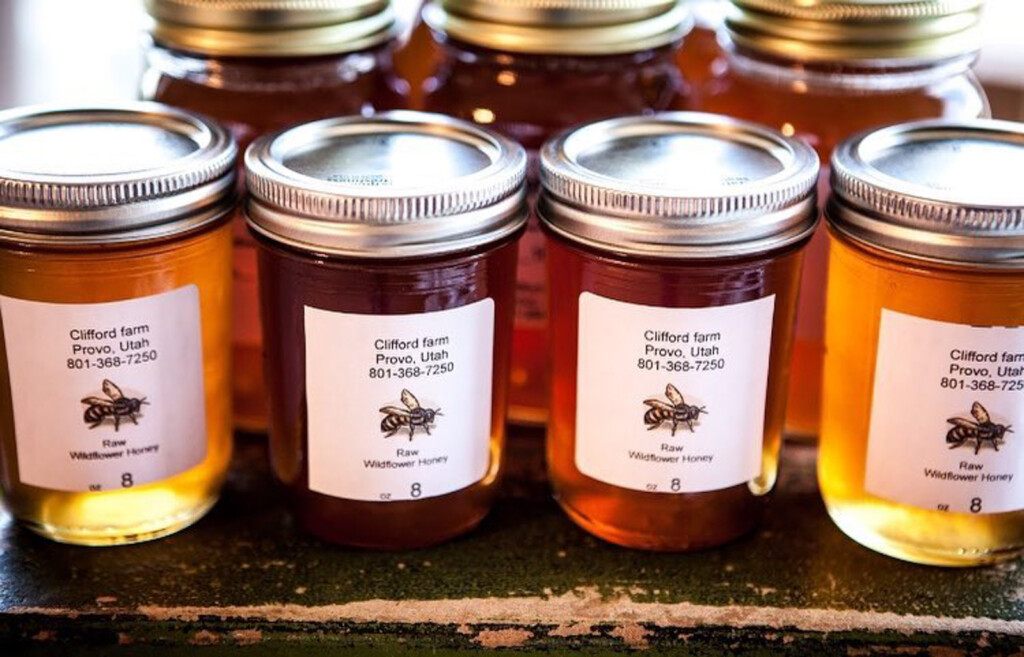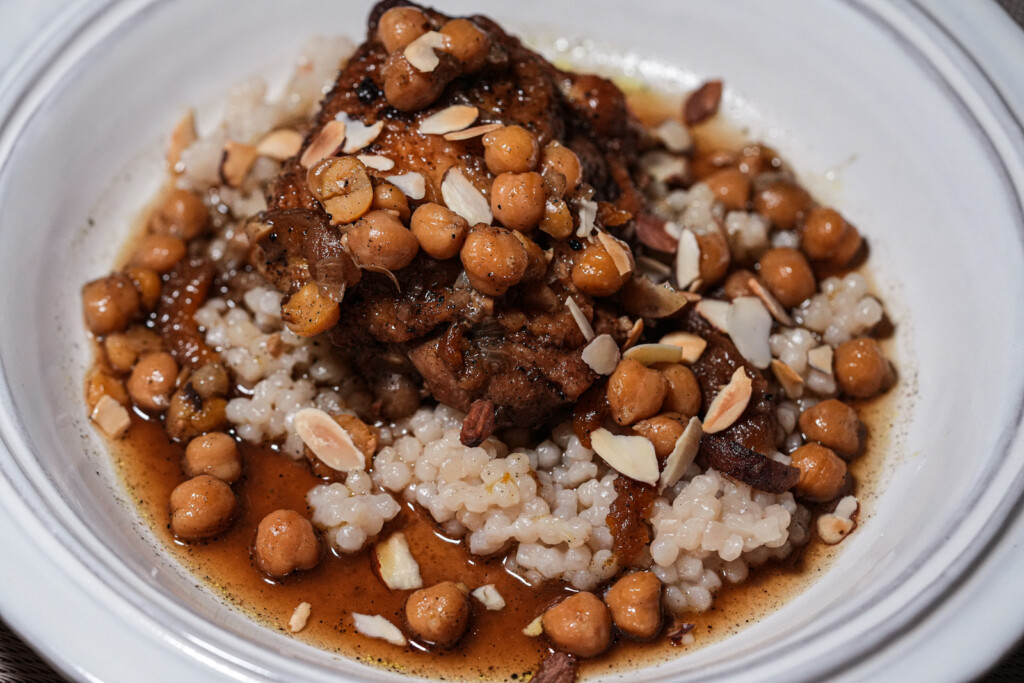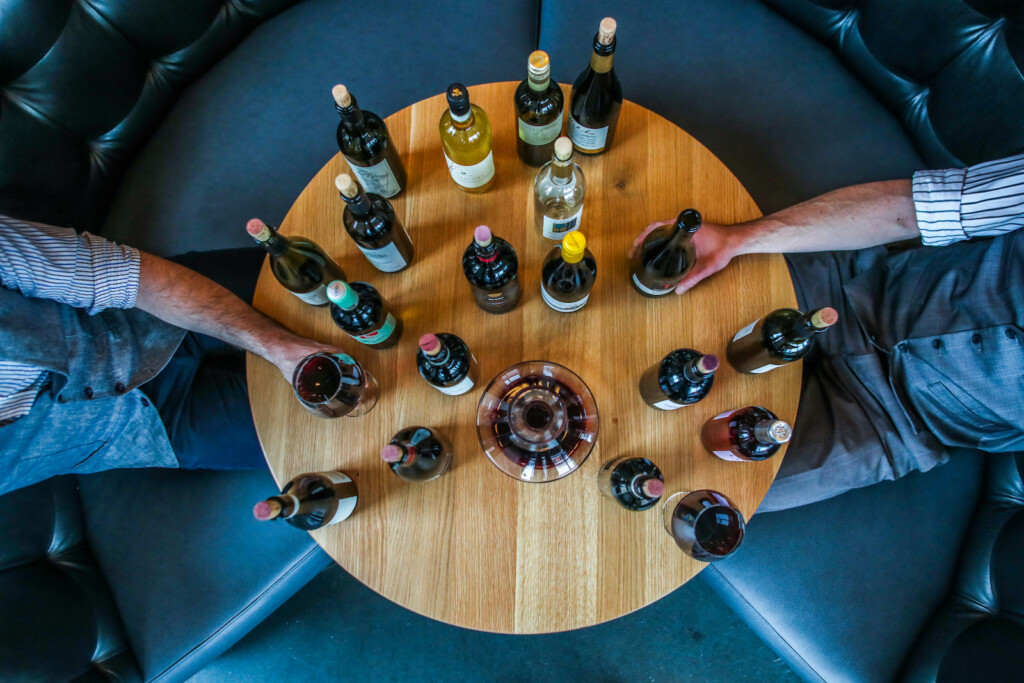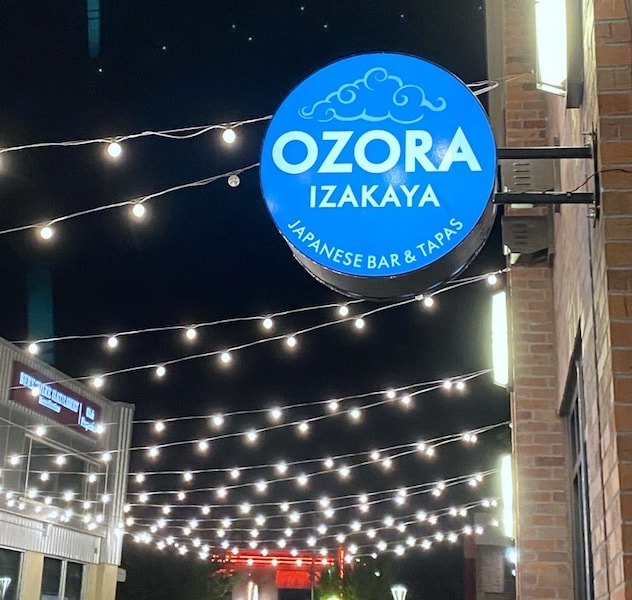
Following on the ramen trend of recent years, I’ve been noticing the word izakaya popping up a lot lately in culinary circles and restaurants. The term izakaya in Japan is typically used to describe a type of bar or small restaurant where inexpensive dishes and snacks are served, much like tapas in Spain. Most izakayas are open late at night and the focus is on drinks more than food, where the small plates of food are meant to help soak up beer and other beverages.
The word izakaya, literally translates as “a shop for people to stay with alcohol.” However, in this country izakaya has come to also describe a style of dining and drinking, not just the place in which to do it. So in that sense, it’s used in much the same way omakase is used. Some of the Utah spots that I’m familiar with doing izakaya style cuisine include Nohm, Osaka Sushi & Izakaya, Ramen Legend & Izakaya, and Ozora Izakaya. I’ve written about Nohm and Osaka in the past. And frankly, the word izakaya seems to have been tacked onto Ramen Legend as an afterthought; it’s not truly an izakaya eatery. So this week’s focus is on Ozora Izakaya Japanese Bar & Tapas, a relatively new Sugarhouse restaurant that opened a couple months ago.
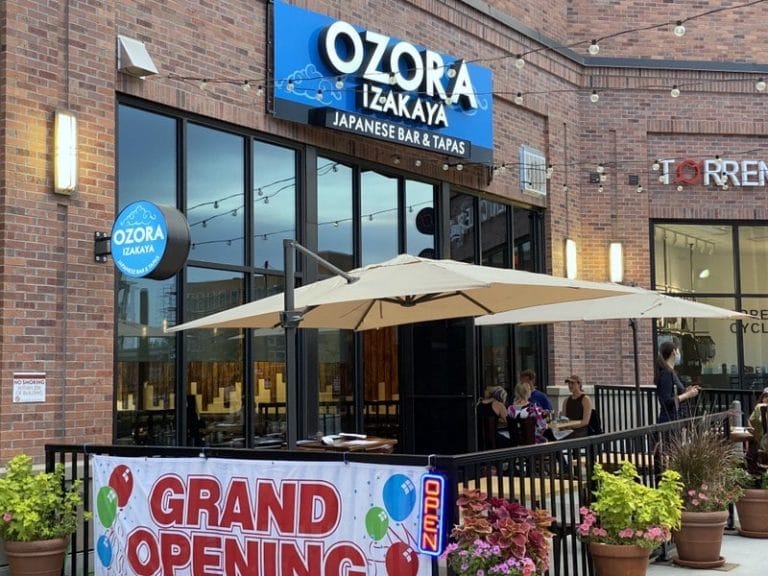
To me, Nohm is the one true izakaya in SLC. All the others have far too extensive menus and serve items that aren’t typically available in a Japanese izakaya, such as sushi and ramen. Such is the case with Ozora Izakaya, which perhaps added sushi rolls, nigiri, sashimi and such to the menu since those items are so popular with Americans these days. But authentic izakaya eateries usually feature yakitori, kushiyaki, karaage, tofu, yakisoba and such; there isn’t usually sushi and other raw foods except occasionally sashimi.
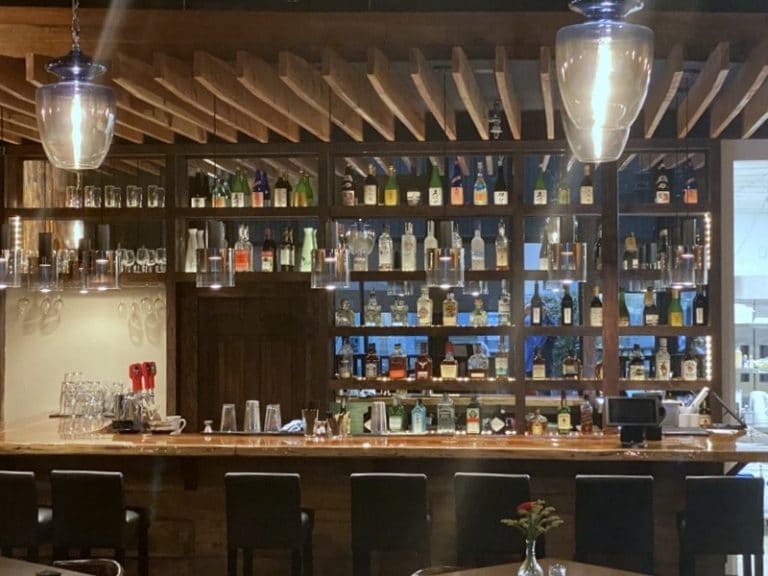
Ozora certainly doesn’t have a Japanese bar/pub feel to it; it’s too fancy. It does, however, have a beautiful bar with a big beverage selection that includes a large array of sake by the glass or bottle including even sparkling sake, wine, spirits, beers, and a good cocktail menu ranging from Kamikazes and Mojitos to Manhattans, Cosmopolitans and a French 75. The wine choices are pretty skimpy, so if you’re a wine drinker you probably want to BYOB.

The restaurant is fairly spacious and offers outdoor seating, so even on a busy Saturday night patrons were spaced safely apart. We chose to begin our izakaya experience with some yakitori – skewers of meats, seafood, veggies and such cooked over charcoal. Yakitori and kushiyaki are pretty much synonymous, referring to poultry and other grilled, skewered items such as the tender scallops ($3) with miso sauce we enjoyed.
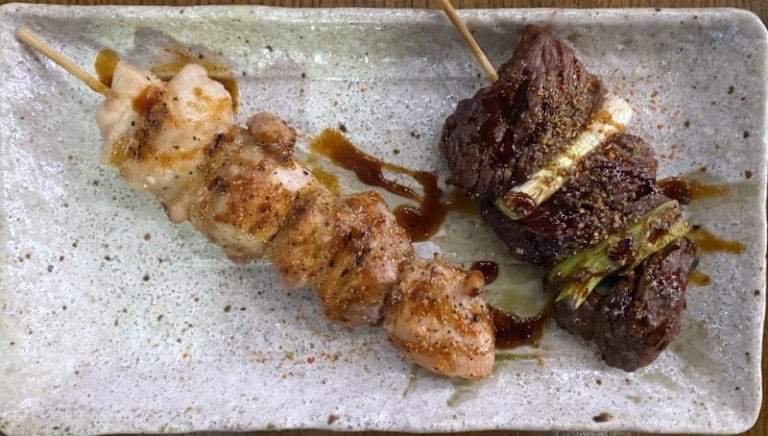
Ozora doesn’t offer as many different chicken yakitori choices as most izakayas do, but there is grilled chicken thigh, chicken with scallion, and chicken meatball. By contrast, when we dined at Torishin yakitori restaurant in NYC last year, we explored over 15 types of chicken, from neck skin and kidneys to chicken oysters and tail. Anyway, at Ozora we opted for the chicken thigh ($2), which was very tender and tasty – our favorite yakitori item, in fact. On the other hand, the grilled beef with green onions ($3) was nicely seasoned but tough and chewy. Keep in mind that yakitori dishes are small and inexpensive, so you’ll want to order an array of them for sharing. Other yakitori menu items at Ozora include shrimp, eggplant, pork belly, bacon and asparagus, shishito pepper, shiitakes, and more.

In addition to yakitori/kushiyaki, Ozora Izakaya also has a kushikatsu/kushiage selection. These are skewers of meat, seafood, veggies and such that are breaded with panko crumbs and then deep-fried. I ordered a pork skewer ($3) that was remarkably tender and tasty, drizzled with a traditional tonkatsu sauce. However, the delicately flavored shrimp ($3), although perfectly cooked, was overwhelmed by the breading and sauce. Other kushikatsu/kushiage items at Ozora include kabocha squash, shiitake, scallops, tilapia, mozzarella (not exactly traditional in Japan), scallops and quail eggs.
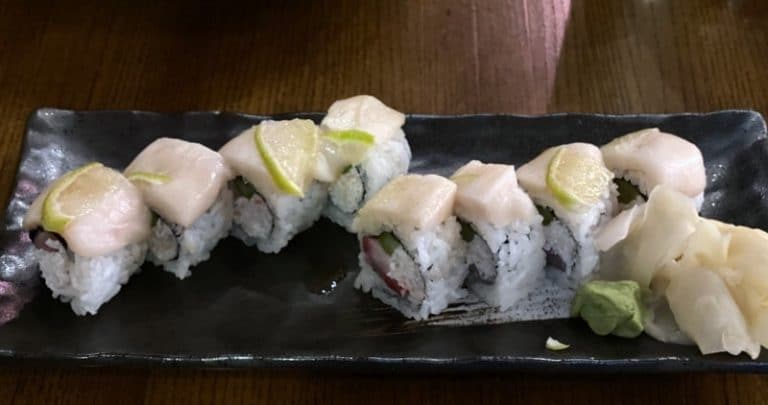
We decided to sample a bit of Ozora sushi (when in Rome …), most of which is pretty routine: Venus, Dragon, Rainbow, Vegas, and so on. I have to say that the roll we ordered – a Zion roll ($14) was fairly underwhelming. It was a very average tasting sushi roll with (nearly nonexistent) crab, asparagus and yellowtail, topped with escolar, thinly-sliced lime and ponzu sauce.

A better choice was Hamachi Crudo ($12) from the izakaya menu. This was essentially yellowtail sashimi: thin, melt-in-the-mouth tender slices of raw yellowtail, kissed with yuzu miso, truffle ponzu, and served with greens and cherry tomatoes alongside. With a dish like this one, it’s the quality of the fish that is of the utmost, and I couldn’t complain about the quality of the buttery yellowtail.
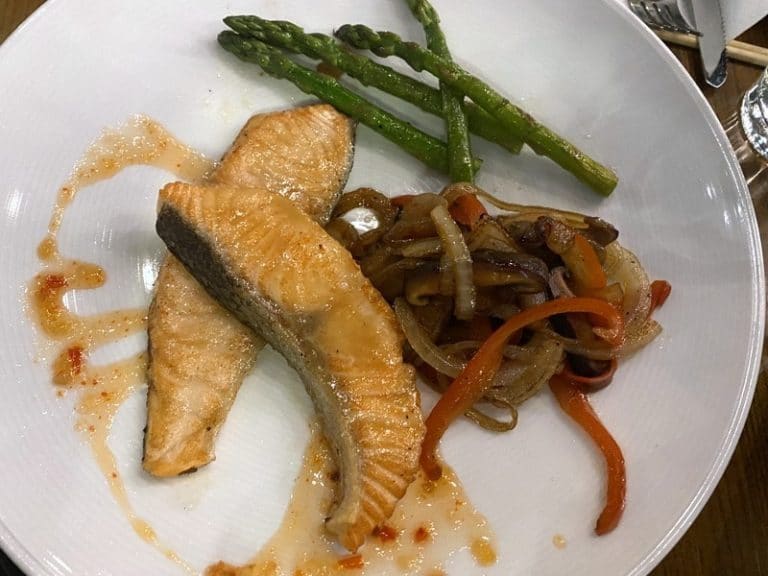
On the other hand, the Miso-Glazed Salmon dish ($14) that our server recommended was a definite miss. It’s pretty hard to screw up a simple dish like miso-glazed salmon, but our fish was severely overcooked – so much so that we ate a couple of bites and then raised the white flag. It’s a shame because the house-made miso glaze was delicious, but couldn’t save the dried out fish.
I’m hoping that more izakaya eateries – more authentic izakaya eateries, that is – open here in Utah. I would welcome the change from yet another ramen restaurant. As for this izakaya restaurant – Ozora Izakaya – I’d say that overall we enjoyed our dinner there, but not enough to make us want to return.
Photos by Ted Scheffler
Culinary quote of the week:
“Failure is the condiment that gives success its flavor.” — Truman Capote
FOR MORE RESTAURANT REVIEWS GO HERE.
THIS CONTENT IS FROM UTAH BITES NEWSLETTER.
CLICK HERE AND RECEIVE WEEKLY RESTAURANT REVIEWS, TED’S FAVORITE RECIPE, AND DRINK OF THE WEEK.
 Originally trained as an anthropologist, Ted Scheffler is a seasoned food, wine & travel writer based in Utah. He loves cooking, skiing, and spends an inordinate amount of time tending to his ever-growing herd of guitars and amplifiers.
Originally trained as an anthropologist, Ted Scheffler is a seasoned food, wine & travel writer based in Utah. He loves cooking, skiing, and spends an inordinate amount of time tending to his ever-growing herd of guitars and amplifiers.
SUPPORT OUR SPONSORS: click on their logos to visit their website
[envira-gallery slug=”food-logos”]



